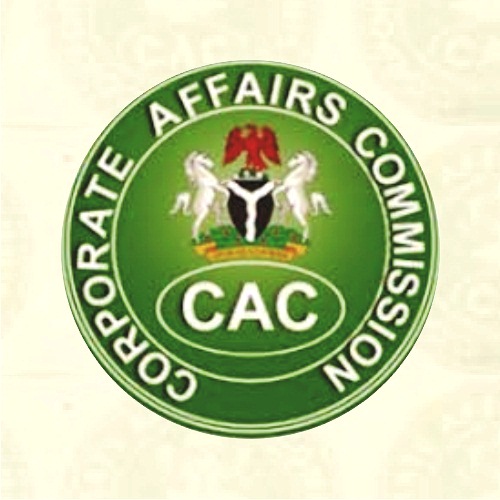As Nigeria’s government continues to face the challenge of making the country more business-friendly across all sectors, the Corporate Affairs Commission (CAC) has been described as a barrier to the ease of doing business in the country.
The processes for business incorporation are among the metrics for determining how burdensome or flexible it is to do business in an economy.
An investigation into the activities of the CAC in August 2021 found many operational and systemic lapses in the organisation responsible for registering businesses in the country, including slow staff response time, persistent server downtimes, an unnecessarily tedious registration process and the commission’s unyielding indifference to these inefficiencies.
The investigation also found that these inadequacies had resulted in many customers of the agency being forced to hand over the process of registering their business and other post-incorporation registrations to staff of the CAC, who by regulation and law are exempt from doing so.
“A lot of registrations are done by staff of CAC who tell customers they can facilitate the registration for them. It is no wonder the server is always down and staff are nowhere around to attend to your documents,” a lawyer had noted.
Since the 2021 report, some of the issues bedevilling business and company registration have not been resolved.
“The attitude there remains very lackadaisical,” Ese, an Ibadan-based lawyer and accredited agent of CAC, said. “Nothing has changed since we spoke two years ago.”
“The CAC is supposed to be the premier agency to enable the government’s ease of doing Business programme. For the last two months it has been the greatest hindrance to corporate Nigeria. Many lawyers in the country have been able to print status reports for their foreign or their local clients,” another lawyer said.
“Banks are refusing to process new facilities because new clients cannot produce their corporate documentation. This is because the CAC portal which is the repository of all corporate information in Nigeria has broken down. This is a national disgrace – and no one is talking about it,” he added.
“The CAC portal has consistently had a problem,” Ojo, an Abuja-based lawyer said. “It has been going off and on and crashing. Two weeks ago, we couldn’t do anything. We couldn’t process any document at all. It had to be done manually.”
The system, she said, “does not allow me to pay annual returns from let’s say 2018 to 2022. Rather we have to pay manually through Remita, and it makes it more expensive as the payment isn’t done as one bulk payment via Remita as in the past. We have to pay each year separately. Of course this means that remita collects commission on each year’s payment and our customers have to bear the additional cost. This of course adds to the cost of doing business.”
She added: “There is a very obvious institutional lethargy driven by the management of the CAC. Their claims of 24-hour registration are false and not tenable. It just doesn’t happen. It takes almost a week to get what they claim is done in 24 hours.”
“When the staff, processes and systems of CAC are not as efficient as they should be, more local companies are not registered, international investment location decisions will not favour the country; resulting in lower levels of entrepreneurial activity, lower employment opportunities, lower government tax revenues and diminished personal incomes.”
CAC’s registrar-general, Garba Abubakar, says his “organisation that has over the years been committed to continuous improvement in its processes and procedures”.
He said recently that the commission’s Customer Relationship Management in line with global best practices was active for customers to leverage and resolve challenges in record time.
An IT expert and a senior staff member of the CAC said the constant breakdown of the CAC’s servers is one of the major barriers to registering a company in Africa’s largest economy.
“There is pressure no doubt on our servers and we should have remediated these pressures when they began to come up. They weren’t designed to take as many registrations as we are getting. They were primarily designed to incorporate businesses. Investments in more servers would have helped. Sadly, management feels it more important to invest in other things that are inconsequential to the work we do, and to crow about 24 hour registration that does not exist,” he said.
SERVICOM, the federal agency responsible for promoting effective and efficient service delivery in ministries, departments and agencies (MDAs) recently touted the CAC’s service delivery index as being within acceptable limits and so far, the highest among government agencies in the country.
Nnena Akajemeli, national coordinator/CEO of SERVICOM, revealed that the evaluation report ranked the CAC as the highest government agency in service delivery so far in the country.
She said to arrive at the decision, SERVICOM interacted with customers, stakeholders, accredited agents, and vendors, amongst others, in addition to reviewing the commission’s service timelines, website performance, and other relevant documents.
While the CAC would not pass basic efficiency and transparency test in best practice environments, a new Executive Order 001 (EO1) compliance report by the Presidential Enabling Business Environment Council (PEBEC) identified CAC as being among the five top-performing MDAs that promoted transparency and efficiency in Nigeria’s business environment for 2022.
Jumoke Oduwole, special adviser to the President on ease of doing business and PEBEC secretary, said the top-performing MDAs differentiate themselves by achieving a balanced performance on both the efficiency and transparency scales, across the three cross-cutting directives of transparency, default approval and one government.
“Efficiency measures an MDA’s compliance with service delivery timelines, as well as compliance with the default approval and one government directives of the EO1, while transparency is measured based on the existence of an updated website, interactive online service portal, detailed timelines, costs, statutory requirements and customer service contact details,” she said.
Source: Businessday










